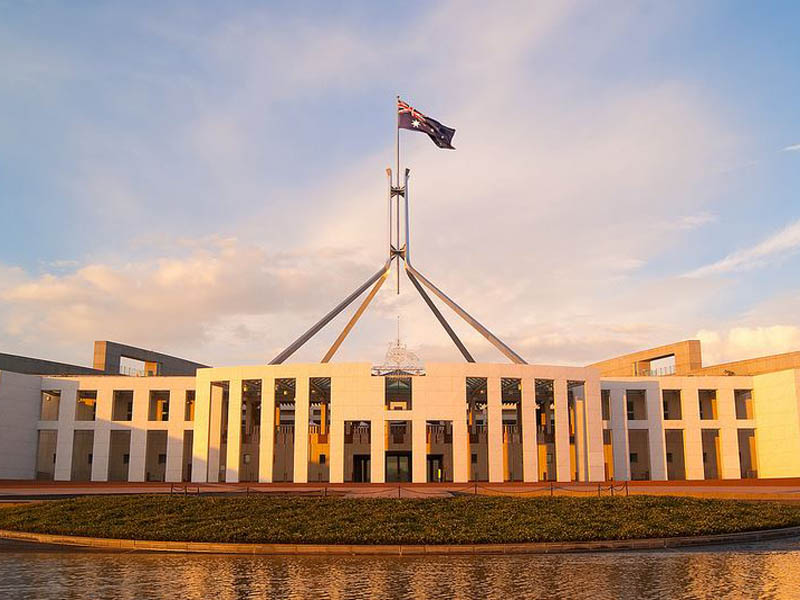Legislation handing “extraordinary” new hacking powers to Australian authorities has sailed through Parliament with support from the Opposition, despite the government not implementing some of the recommendations from the national security committee.
The Australian Federal Police (AFP) and Australian Criminal Intelligence Commission (ACIC) will now be able to access the computers and networks of those suspected of conducting criminal activity online, and even take over their online accounts covertly, under the Identify and Disrupt bill, which was passed by the Senate on Wednesday.

Three new warrants will be introduced under the legislation, allowing authorities to “disrupt” the data of suspected offenders, access their devices and networks to identify them and take over their accounts.
“Under our changes the AFP will have more tools to pursue organised crime gangs to keep drugs off our street and out of our community, and those who commit the most heinous crimes against children,” Home Affairs Minister Karen Andrews said.
The government moved 60 amendments to the legislation in the lower house in response to the Parliamentary Joint Committee on Intelligence and Security’s (PJCIS) report from earlier this month.
The amendments included enhanced oversight powers, reviews in several years time by the Independent National Security Legislation Monitor and the PJCIS, the sunsetting of the powers after five years, and strengthened protections for third parties and journalists.
The amendments meet 23 of the PJCIS’s 33 recommendations, while the government has agreed to implement several others through a broader reform of intelligence surveillance powers.
But it rejected the national security committee’s call for a higher threshold in the issuing of warrants in terms of the crimes they can be applied for, and for warrants to only be approved by a judge, rather than a member of the Administrative Appeals Tribunal.
Several Labor members raised concerns with this and echoed others raised by members of the civil and digital rights sector, as did government members of the PJCIS, but all eventually voted to pass the legislation.
The bill was rejected by the Greens, which said the legislation is another step on the “road to a surveillance state”.
The PJCIS had recommended that the type of crimes the warrants could be issued for be narrowed to those relating to offences against the security of the Commonwealth, offences against humanity, serious drug, weapons and criminal association offences, and money laundering and cybercrime.
Currently, the broad new powers can be granted to combat a swathe of crimes, far further than the terrorism and other offences the government has pointed to in order to justify the need for the legislation.
But the government instead raised the threshold for issuing the warrants to them being “reasonably necessary and proportionate”, up from “justifiable and proportionate”.
Labor had wanted this to go even further, calling on changes to require the warrants only be issued for “serious offences”.
Shadow assistant minister for immigration Andrew Giles said the government is “mischaracterising the breadth of the new powers”.
“It is obviously much easier to justify the introduction of such powers by focusing on the most serious types of crime. No-one would argue with that in respect of crimes like child abuse and exploitation, and terrorism,” Mr Giles said.
“But it is important that we engage in the more difficult task of justifying the introduction of extraordinary powers by reference to how the powers could actually be used.”
The amendments “go a long way” to ensuring the powers can only be used to combat serious crime, but don’t go far enough, multiple Labor MPs said.
Shadow assistant minister for cybersecurity Tim Watts said the warrants should only apply to serious offences.
“This would be an important constraint on the use of these new warrant powers and would limit their application to offences that carry at least a maximum of seven years’ jail and other specified offences,” Mr Watts said.
“While these powers do have international precedent, they also carry inherent risks. As currently drafted, the substance of this bill does not match the government’s rhetoric.”
Liberal MP Tim Wilson, a member of the PJCIS, broke ranks to criticise the government in not adopting all of the committee’s recommendations.
“I’ll be frank…and say that my preference would be more consistent with that of the committee. That’s why we made those recommendations,” Mr Wilson said.
“I will not die in a ditch over them, because the purpose of the legislation is more important than the threshold, but I think the threshold test around warrants and their application, particularly with the new powers, is something that we as a Parliament need to review.”
Despite these concerns, Labor offered support for the legislation in both houses, ensuring its quick passage.
Mr Giles said the new warrants give “extraordinary” powers to authorities, and appropriate safeguards need to be in place.
“Labor supports this bill. It’s an important bill which addresses very significant and worrying gaps in the legislative framework so as to better enable the AFP and the [Australian Criminal Intelligence Commission] to collect intelligence, conduct investigations, and disrupt and prosecute the most serious of crimes in an evolving environment,” Mr Giles said.
“The process of the Parliament here has produced a bill that meets the very serious challenges required to respond to, with appropriate safeguards in place, some of which will require all of us to maintain our attention on their operation and adequacy.”
Mr Watts blasted the government’s handling of the legislation.
“It’s indicative of this government’s record in this place to rush through legislation on national security matters with little regard for process, particularly with national security legislation or even with more technical legislation,” he said.
“While we support the bill, Labor members of the PJCIS do think … safeguards in this bill could go further, particularly in relation to the offences this bill applies to.”
The Greens voted against the legislation in both houses, with Senator Lidia Thorpe unsuccessfully moving a number of amendments.
“Really disappointed to see Labor and Liberal both vote in favour to increase police powers of online surveillance. We tried to make this bill better and include human rights protections for innocent people, but the Greens were outvoted by the major parties,” Senator Thorpe tweeted.
“New warrants allow police to monitor online activity without accusing us of a crime. Take over our accounts and edit our data…making the AFP judge, jury and executioner is not how we deliver justice in this country.”
Crossbench senator Rex Patrick also attempted to amend the legislation, raising concerns that the bill had been “dropped on the Senate in the very last minutes”.
The post ‘Extraordinary’ hacking powers pass Parliament appeared first on InnovationAus.
This post was originally published on InnovationAus.
